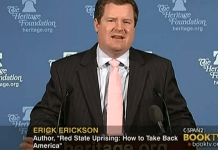Federal Reserve Bank of Minneapolis President Neel Kashkari recently made a thought-provoking observation on the aversion towards high inflation among the American populace, as revealed in an interview with the Financial Times podcast “The Economics Show with Soumaya Keynes.” Kashkari, who has held his position since 2016, shared insights gleaned from roundtable discussions with labor groups and workers in his region, particularly recalling a striking remark from a labor leader representing low-income service workers.
During these discussions, Kashkari encountered a sentiment diverging from conventional economic wisdom: a labor leader expressed that inflation is perceived as more detrimental than a recession by her members. This assertion, seemingly counterintuitive, prompted Kashkari to delve deeper into the underlying reasons behind such a perspective.
The labor leader emphasized that while recessions entail job loss, individuals often rely on support networks comprising friends and family to navigate through challenging economic periods. However, high inflation impacts everyone, leaving individuals without recourse to external assistance as their entire social circle contends with the same economic pressures. This profound insight sparked extensive debate among Kashkari and his colleagues at the Minneapolis Fed, underscoring the nuanced complexities of public sentiment towards economic phenomena.
The notion that high inflation elicits greater disdain than a recession challenges traditional economic paradigms, prompting a reevaluation of prevailing assumptions about economic well-being. Kashkari’s revelation underscores the multifaceted nature of economic perceptions, influenced not only by objective economic indicators but also by subjective experiences and social dynamics.
Furthermore, Kashkari’s remarks shed light on the broader implications of inflationary pressures on societal cohesion and individual resilience. High inflation, characterized by rising prices and diminished purchasing power, erodes the financial stability of households across the socioeconomic spectrum, exacerbating economic inequality and social dislocation.
In light of these insights, policymakers must consider the human dimension of economic policy decisions, recognizing the profound impact of inflation on individual livelihoods and community resilience. Addressing inflationary pressures requires a multifaceted approach encompassing monetary policy, fiscal measures, and targeted interventions to mitigate the adverse effects on vulnerable populations.
Kashkari’s reflections on the public’s perception of inflation underscore the importance of incorporating diverse perspectives into economic policymaking, fostering greater empathy and understanding of the lived experiences of individuals affected by economic fluctuations. By acknowledging the subjective realities of economic hardship, policymakers can develop more effective strategies to promote inclusive growth and equitable prosperity for all members of society.
As the economy grapples with the aftermath of the COVID-19 pandemic and contends with inflationary pressures, Kashkari’s insights serve as a timely reminder of the human dimension of economic challenges. By prioritizing the well-being of individuals and communities, policymakers can navigate through uncertain economic terrain with compassion and resilience, fostering a more equitable and sustainable future for all.























